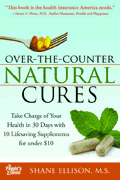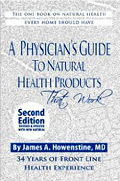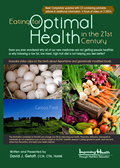HIGHLY PATHOGENIC E. COLI GENIE IS OUT OF THE BOTTLE
PART 2 of 2
By
Byron J. Richards, CCN
June 13, 2011
NewsWithViews.com
How to Prevent and Combat E. coli Infection
In addition to good hygiene, safe food-handling practices, and staying away from antibiotics there are many things you can do to ensure you are more resistant to an infectious E. coli attack.
The solutions center on the health of your digestive tract. You have ten times the number of cells that are foreign in your digestive tract compared to human cells that comprise your body. The diversity of these foreign cells is significant, meaning you have one hundred times the genomic activity in these foreign cells than your human genome. In health, your human genome is relying on the work done by these foreigners to support your health. In disease, the genomic activity of the foreigners can by highly toxic and damaging. Antibiotics knock out a lot of the friendly flora and enable the hostile bacteria to have more of a say – which is why they are potentially so detrimental to your health as well as increasing your risk for infectious E. coli issues.
Every person has a different bacterial mix, even between healthy people. However, a recent study has proven that when you have too many of one type of bacteria then you are much more susceptible to an invasion by the pathogenic forms of that bacteria. In other words, if you have digestive imbalance that already contains too much E. coli, even if that extra E. coli is the somewhat friendly type, then you are more at risk for infectious E. coli taking hold if you happen to swallow some. It is as if your immune system has become inappropriately unable to keep the numbers of E. coli organisms in proper balance and is therefore unable to properly identify and act swiftly against an infectious form of E. coli.
This is why antibiotics are so bad. But it is not fair just to blame them since a poor quality diet also has a large bearing on your balance of digestive power. Junk food, high-sugar intake, too much alcohol, and a lack of fiber all contribute to digestive imbalance that sets the stage for E. coli infection. Conversely, eating higher quality food with plenty of fiber (fruits, veggies, and whole grains) will encourage better bacterial balance. This makes extra supplemental fiber and friendly flora (acidophilus) two of the basic additional strategies you can employ to help correct an imbalance of power in your gut – especially if you have a history of poor diet, antibiotic use, or existing digestive problems.
It is now known that friendly flora can battle the adhesion signals that enable infectious E. coli to stick to human cells, a fact that has been confirmed by detailed animal testing. A specific strain of friendly flora, Lactobacillus rhamnosus, was found to disrupt E. coli biofilms. Friendly flora in general was found to have a positive impact on killing infectious E. coli. Another strain of friendly flora, Lactobacillus plantarum, has been shown to preserve the integrity of the gut barrier in the face of E. coli infection. Cell studies show that friendly flora can help reduce the toxin release by pathogenic E. coli.
Adequate dietary fiber is needed as the substrate for friendly flora fermentation. Since most Americans eat half the fiber they should, we have a population at high risk. Additionally, various nutrients may help catalyze the growth of friendly flora while reducing E. coli. It has recently been shown that zinc and quercetin can help the growth of friendly flora while at the same time inhibiting the growth of E. coli. The science of friendly flora, fiber, and related compounds towards the production of better bacterial balance and helping to control problems is now crystal clear and has been extensively reviewed – even by the Germans! It is actually harmful to public health that public health officials won’t promote these basic strategies for protection in the face of a deadly E. coli outbreak.
As it turns out, your body weight is now recognized as a key sign of digestive imbalance – both underweight and overweight. Underweight typically means you can’t absorb food properly, reflective of a digestive imbalance of bacteria as well as high levels of inflammation. Overweight people almost always have imbalanced bacteria that typically have extra E. coli as part of the problem. When underweight individuals are able to gain weight and when overweight individuals are consistently losing weight, it is reflective of their digestive balance of powers moving in a better direction. However, being stuck underweight or overweight and not being able to make consistent improvement is a clear sign of bacterial imbalance that places you at higher risk for a hostile E. coli attack. I have reviewed this issue extensively in three other articles: How Digestive Problems Prevent Weight Loss, Malfunctioning Immunity Causes Weight Gain, and Germ Gangs Block Weight Loss.
Your human system and whatever E. coli is in your gut are in a constant state of cross communication. Interestingly, there are receptors for adrenaline on infectious E. coli that turn on the virulence genes that activate the infectious potential of E. coli. What this means is that a happy and more relaxed person is less likely to get a bad case of infectious E. coli if exposed. It also means that substances in your gut that can bind to adrenaline receptors on E. coli could be one angle on addressing this problem. The best natural compound I know that does this is quercetin, which as mentioned previously has science showing that it reduces E. coli infection. Quercetin is the most abundant flavonoid in fruits and vegetables, especially apples and onions. It is available as a dietary supplement in highly concentrated amounts (500 mg per capsule vs. 50 mg in a ripe apple). Quercetin lowers the LPS toxicity that is typically part of the toxic profile of infectious of E. coli. It also helps stabilize immune cells in the face of stress. Both quercetin and resveratrol have been shown to inhibit E. coli from making energy. In terms of practical application, virtually any nutrient that helps you offset stress will be of potential assistance in reducing the risk for an infectious E. coli attack, one important angle on the problem.
Another interesting aspect of friendly flora is that it also helps regulate the stress response in your digestive tract. It helps your gut barrier function better in response to stress and can help lower the inflammatory gene signal NF-kappaB that is central to inflammation.
The next important topic to understand is that of quorum-sensing (QS) molecules. It means that there is communication signaling going on that is activating the genes that enable the bacteria to behave in concert with each other as part of a hostile gang (biofilm). If you can disrupt QS signaling, then you interfere with the infectious orders coming from the germ gang – hitting at the source of the infectious intensity.
It should come as no surprise to anyone that many natural compounds demonstrate QS-disrupting molecules. This is because fruits and vegetables have been dealing with bacterial infection for millions of years, including E. coli. Tomatoes, carrots, peas, habanero chilies, and garlic have all been shown to possess bacterial QS-disrupting molecules. What this means, in part, is that a diet of a variety of plants and fruits is also vital for helping to keep bacteria in natural balance in your digestive tract. One study shows that oregano oil, allspice oil, and garlic oil all have infectious E. coli disrupting ability – especially oregano oil.
Several studies now indicate that quercetin is a potent QS-disrupter for E. coli germ gangs. A brand new study shows that broccoli extracts contain potent QS disrupting compounds for infectious E. coli – and quercetin was the most active compound in this regard isolated from the broccoli extracts. Another study shows that citrus-derived flavonoids, including quercetin, possess QS-disrupting properties for E. coli. When these studies are combined with all the above-mentioned quercetin studies it means that quercetin is a natural and potent anti-E. coli compound.
Pathogenic bacteria are obviously a major threat to survival of the human species and are highly problematic for infants who are at risk for germ gang formation. Thus, it is also not surprising to find some of the very best protective remedies are in mother’s milk, especially first milk colostrum. Since this wonder beverage is not readily available for dietary supplement use, everyone should be happy that numerous studies show that bovine colostrum, whey protein, and specially-filtered whey protein concentrate have potent E. coli disrupting activities. Furthermore, many of their modes of operation are rather gentle yet highly effective, since they have to work in newborns.
Bovine colostrum has been proven to lower the LPS toxicity of E. coli infection, which otherwise may lead to septic shock. In fact, bovine colostrum in infants has been shown to help clear up bloody diarrhea (E. coli hemorrhagic diarrhea) while reducing the likelihood of progression to full blown hemolytic uremic syndrome as is being experienced in Germany right now.
Since cows are typically exposed to E. coli, their colostrum often contains factors directed at preventing E. coli infection – as was demonstrated in a recent control trial wherein specially prepared colostrum readily stopped E. coli traveler’s diarrhea. Another study shows clearly that bovine colostrum contains peptides that disrupt infectious E. coli. And yet another study indicates that bovine colostrum can have a 45.9% to 96.7% ability to inhibit the hemolytic damage to red blood cells that can be caused by nasty E. coli infections.
Lactoferrin is one of the active proteins in colostrum and whey protein. It is also available as a purified bovine lactoferrin. This compound demonstrates broad-spectrum antimicrobial activity, including direct inhibition of infectious E. coli. Lactoferrin is rapidly internalized by E. coli and then triggers disruption of the E. coli cell membrane. Lactoferrin can bind to human cells and prevent bacterial invasion or bind to bacterial cells and prevent them from sticking to human cells. Lactoferrin is a potent E. coli disrupting compound.
Whey protein is a known booster of immune cell function. Whey protein has been shown to be effective at preventing infectious E. coli from sticking to and invading human cells. A new study with goat-derived whey protein showed that as whey protein is digested it produces peptides that have direct activity against infectious E. coli. Interestingly, edible whey protein coatings for turkey hot dogs and roasted turkey inhibited the formation of infectious E. coli in these ready to eat foods.
The dairy industry has taken advantage of the unique immune-support properties of whey protein, developing specially-filtered whey protein that concentrates the immune-active components such as the sialic acid-containing glycomacropeptides (GMPs) as well as lactoferrin. GMPs have shown a potent ability to bind on to infectious E. coli and render it harmless, based in part on the sialic acid they contain. GMPs also bind on to infectious E. coli toxins, helping to neutralize them so they cannot damage human cells. This type of whey product is one of my long time favorites for helping almost any kind of GI distress and is easy for kids to use.
Virtually all of the nutrients discussed so fat have an anti-inflammatory effect on the GI tract lining, thus supporting gut barrier integrity. Many of these nutrients also support the healthy structure of the GI tract lining. Additionally, glutamine is the primary amino acid that makes up the structure of your digestive lining and a well known nutrient for digestive immunity. A recent animal study has shown that supplemental glutamine can protect the gut barrier from attack by infectious E. coli.
Grape seed extract is another potent antioxidant nutrient that attaches to collagen structures and helps strengthen them, including your gut barrier integrity. Research done by the U.S. Department of Agriculture showed that grape seed extract could inhibit the toxin of highly infectious E. coli. Grape seed extract has been shown to inhibit the growth of E. coli in cooked ground beef. I like grape seed extract for infants and children as the product is a basic fruit extract that is very safe and capsules are easy to pull apart and mix in almost anything for easy consumption. This is also true of many of the whey products, like specially-filtered whey protein concentrate.
Summary
New strains of superstrain E. coli are here to stay and are already in the U.S. The primary public health crisis that caused these problems is the overuse of antibiotics in factory farm animals and the overuse of antibiotics in humans. Ironically, the overuse in farm animals was trying to eradicate the O157:H7 strain and unfortunately has now created even worse superstrains of E. coli.
The underlying health of your digestive terrain determines your actual risk for infectious E. coli should you be exposed to it. Hopefully this information will serve as a wake up call for some to eat better and to diligently correct any existing digestive problems.
There is an array of helpful nutrition that can assist you to have better digestive health. Many of these nutrients have millions of years of experience in dealing with infectious E. coli – making them a safe and effective option for supporting your health. Your foundation is a healthy diet with a wide variety of fiber and active compounds that are found in fruits, vegetables, and whole grains.
| Subscribe to the NewsWithViews Daily News Alerts! |
Health freedom in Germany is long gone and their population does not have easy access to many of the nutrients I have listed herein. Health freedom in the United States hangs by a thread, with our FDA actively trying to suppress you from knowing about or acting on the type of information I have presented herein. The Obama FDA is now engaged in the use of armed U.S. marshals to bully dietary supplement companies, as the police force to enforce their bizarre drug-based paradigm for human health.
The FDA prefers you follow the directions of the profession that has helped create the superstrain E. coli risk, a profession that has almost no clue about anything I have just explained to you. Be wary of the German path to socialized medicine that resulted in their loss of freedom and choice. Be wary of being a sheeple in the public health herd.
Click here for part -----> 1, 2,
� 2011 Wellness Resources, Inc. - All Rights Reserved












 Share
This Article
Share
This Article







